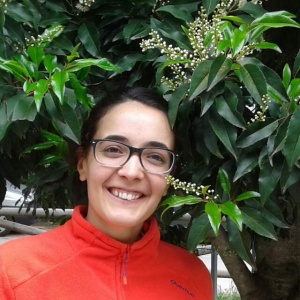Management linked to ecological intensification supports insect pollinators in Iberian wood-pastures
- Articles in SCI Journals
- Mar, 2023
Pardo, A., Rolo, V., Carrascosa, A., Gonzalez-Bornay, G. & Moreno, G. (2023) Management linked to ecological intensification supports insect pollinators in Iberian wood-pastures.
Landscape Ecology,
38, 3389-3403. DOI:10.1007/s10980-023-01637-7 (IF2022 5,2; Q1 Ecology)
Summary:
Context
Iberian wood-pastures (dehesas) constitute important habitats for flower-visiting insects, thus supporting the delivery of essential ecosystem services. However, dehesas have been experiencing increasing degradation either by farming intensification or abandonment.
Objectives
We assess if alternative management strategies linked to ecological intensification, designed to maximize productivity in Iberian dehesas, are also favorable for biodiversity, specifically pollinators.
Methods
We carried surveys in nine dehesas located across western and southwestern Spain. Each site comprised five paddocks under different management: conventional grazing, alternative systems linked to ecological intensification (rotational grazing, legume-enriched young and old pastures) and abandonment. We surveyed bees and hoverflies along fixed transects, together with flower cover and botanical composition, and we assessed landscape configuration.
Results
Results showed that rotational grazing, legume-enriched and abandonment enhanced pollinator abundance compared to conventional management. Yet, ecological intensification practices were the most beneficial, showing a positive impact also on pollinator richness. Flower cover, together with plant diversity and landscape composition, were important drivers of pollinator diversity metrics. These patterns varied among pollinator groups, e.g., hoverflies were less impacted by management than bees, while being more affected by plant diversity.
Conclusions
Our findings suggest that alternative management linked to ecological intensification has potential in low-input farming systems such as Iberian dehesas. These measures can help to maximize productivity, whilst preserving biodiversity and essential ecosystem services such as pollination. Complementary measures, such as the preservation or restoration of semi-natural habitats, also appear to be crucial for effectively safeguarding pollinating insects in this High Nature Value farming system.
https://link.springer.com/article/10.1007/s10980-023-01637-7citeas

